In the dynamic landscape of digital education and media management, institutions constantly seek innovative solutions to manage, record, and distribute video content efficiently. Enter Opencast, a tool designed to streamline these processes for educational institutions and organizations. But what is Opencast, exactly?
Opencast is a flexible, reliable, and scalable open-source video management system for academic institutions, built by a community of developers from leading universities and organizations worldwide.
The platform helps educators and administrators at schools record and manage video content.
In this blog, we’ll cover the most frequently asked questions about this platform.
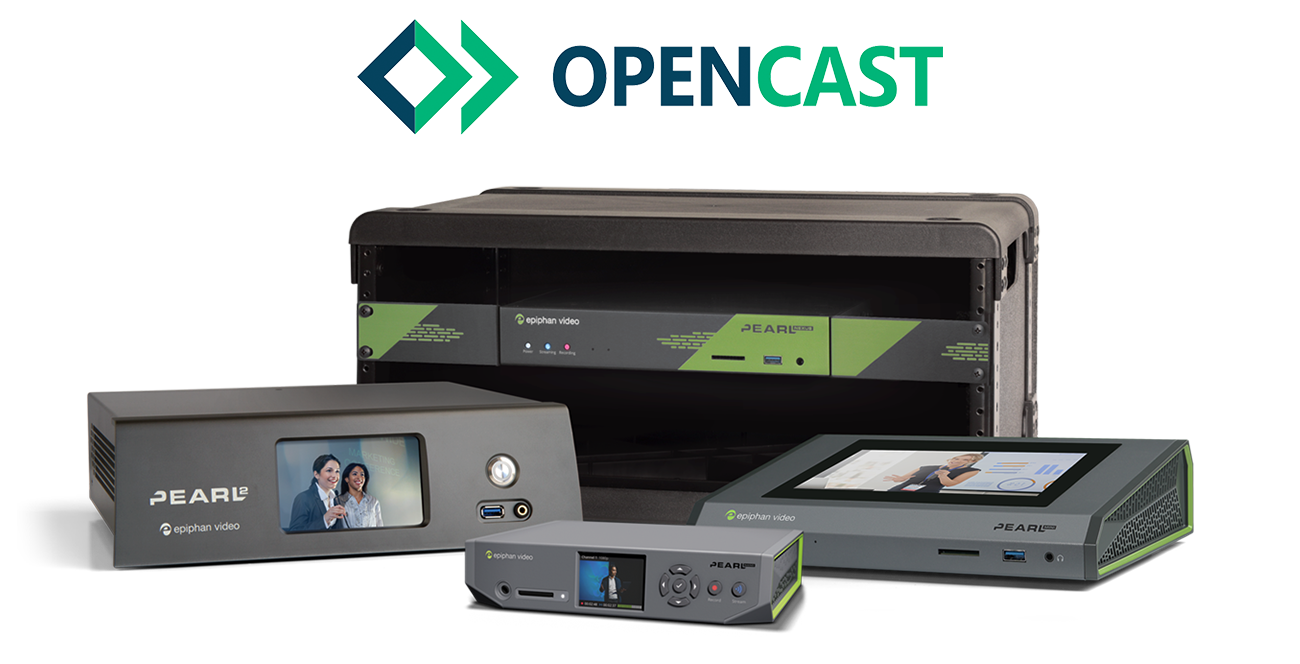
Discover simplified Opencast lecture capture with Pearl
Pearl is a reliable hardware capture agent that integrated seamlessly with Opencast. Harness the power of this integration to enhance efficiency and flexibility in lecture recording.
Understanding Opencast
Opencast is a free, open-source video management system made for educational institutions. It allows users to schedule, record, edit, and distribute video and audio content. It offers tools for managing digital media, from lecture capture in universities to video management in organizations.
What does Opencast do?
Opencast caters to several critical needs in video management:
- Scheduled Recording: Enables institutions to automate the recording of lectures and events.
- Live Streaming: Enables the live broadcast of events or lectures, making content accessible in real time.
- Video Editing and Processing: Offers tools for editing, processing, and enhancing video content post-recording.
- Content Distribution: Facilitates the distribution of content through various channels, ensuring accessibility for the intended audience.
Who uses Opencast?
AV administrators and developers in higher education institutions primarily use Opencast. Its robust set of tools caters to the complex needs of universities and colleges that regularly produce and manage a large volume of video content. Additionally, its open-source and flexible design makes it appealing to organizations beyond academia looking for a video content management system.
Who might benefit from Opencast?
Any institution or organization looking to manage video content more efficiently could benefit from Opencast. It is particularly beneficial for educational institutions aiming to enhance their e-learning platforms with high-quality video content.
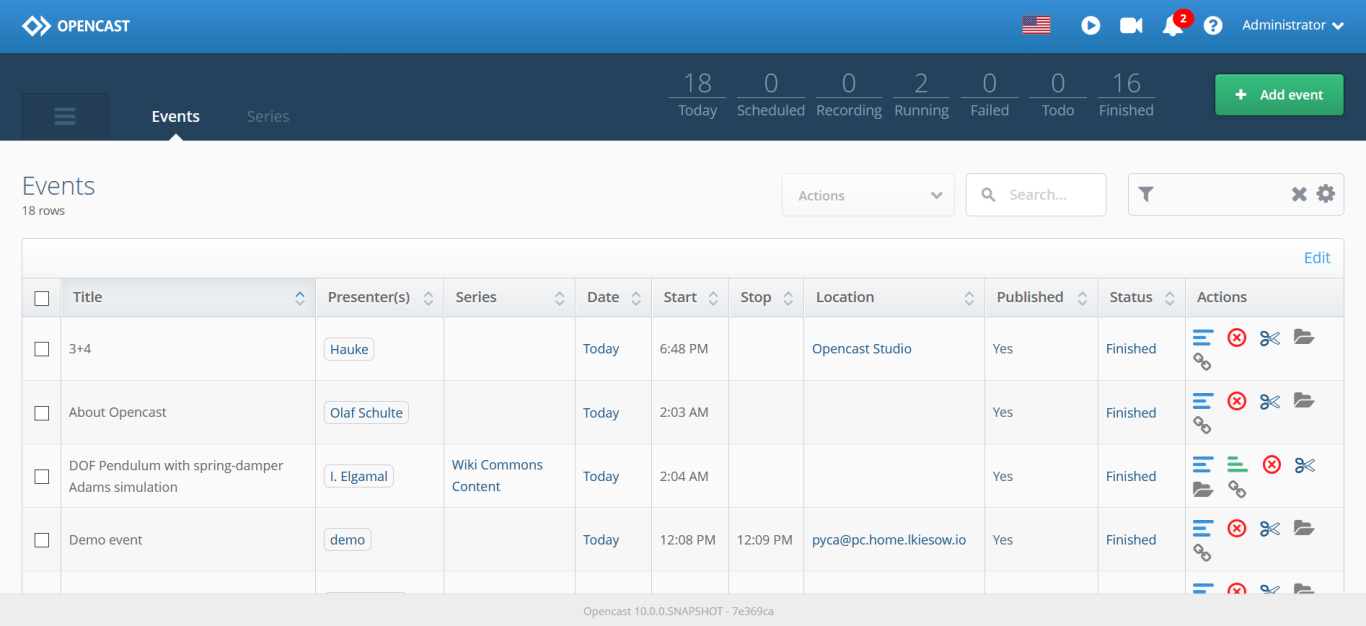
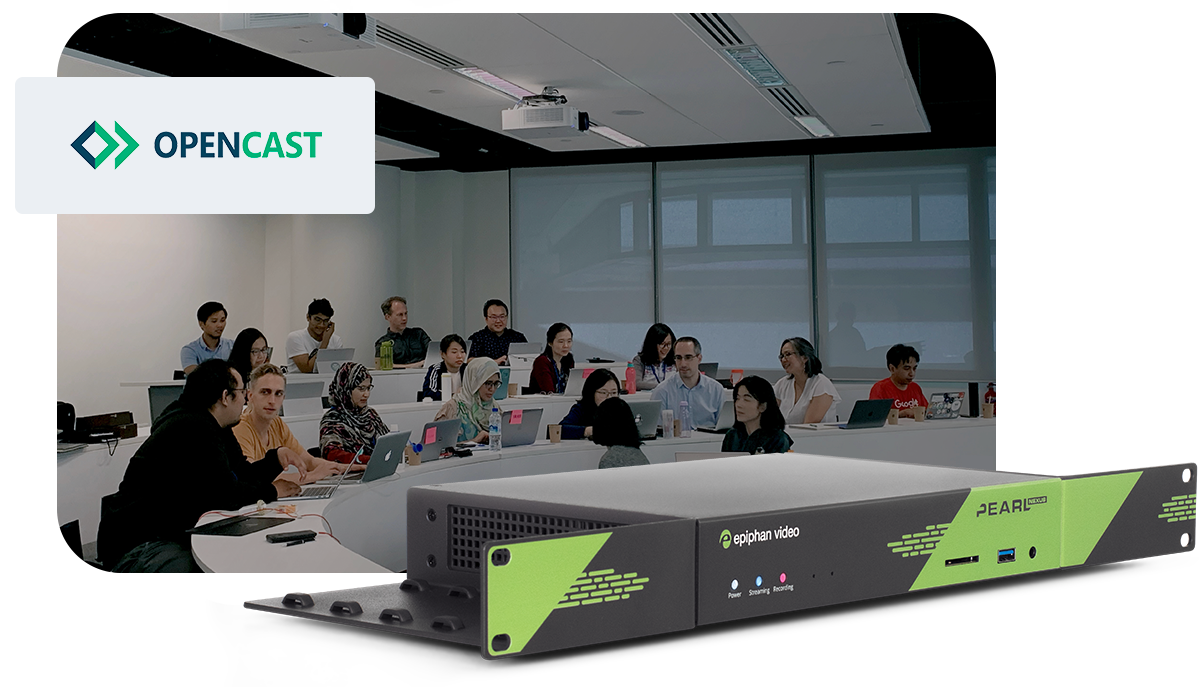
Discover simplified Opencast lecture capture with Pearl
Learn moreCommon questions about Opencast
Is Opencast difficult to implement and use?
Opencast is designed with scalability and ease of use in mind. While the initial setup might require some technical expertise, especially to customize it to specific needs, its user interface is intuitive for day-to-day operations. The open-source community around Opencast also provides extensive documentation and support.
How is Opencast different from other video management solutions?
Opencast’s open-source nature is its most significant differentiator. This means it’s not only free to use but also highly customizable. Institutions can adapt it to their unique needs without the licensing and cost constraints associated with proprietary software. Moreover, it’s specifically designed for educational environments, making it a tailored solution for academic video management.
How often does Opencast get updated?
The platform operates on a schedule that rolls out two major updates every year, along with various smaller updates for bug fixes and maintenance in between. Typically, these major updates are launched once in June and once in December. A detailed schedule for these releases is often shared about six months in advance of each major update.
How does video capture work in Opencast?
Opencast employs a concept known as “capture agents” to record video content. These tools connect to cameras or desktops to record audio and video. They can be software or hardware. Once captured, the content is processed and managed through the Opencast platform.
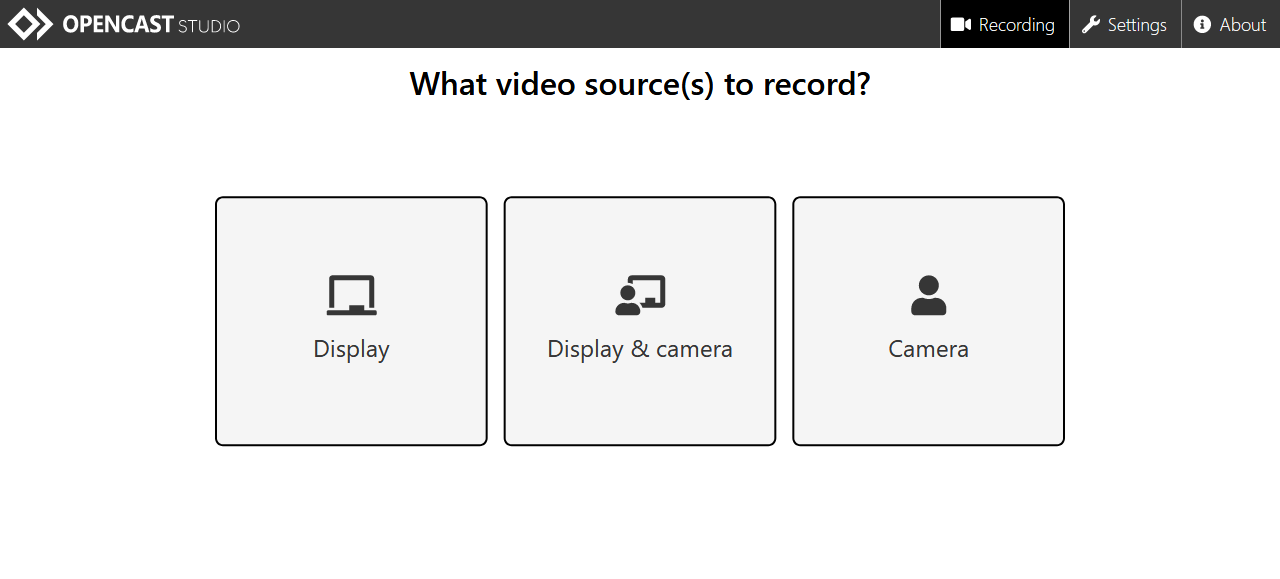
Integrating recording hardware
While Opencast can work with a variety of recording hardware and software, finding the right fit is crucial for capturing high-quality video content and ensuring smooth operations. In this context, Pearl encoders by Epiphan emerge as a compelling choice for several reasons.
Pearl encoders offer unparalleled versatility with support for multiple video inputs (HDMI, SDI, USB, IP) and audio inputs (digital embedded, IP, USB, analog). This means they can adapt to various recording environments and setups, from lecture halls to seminar rooms. Additionally, their resilience to network failures – with features like recording schedules offline and uploading when a connection is restored – ensures that no content is lost due to technical issues.

From an administrative perspective, Pearl encoders simplify the video capture process. AV administrators can monitor the encoders from the Opencast Admin interface, overseeing recording schedules and device status remotely. Scheduled recording capabilities ensure lecture and event capture without manual intervention, directly aligning with Opencast’s automation ethos.
Pearl is a great option for institutions seeking a comprehensive AV solution. It offers a cloud-based control portal for managing fleets called Epiphan Edge. It also has an API for integrating with in-room control systems. With models ranging from 1 to 6 channels, supporting HD to 4K, Pearl encoders cater to institutions of all sizes and technical requirements.
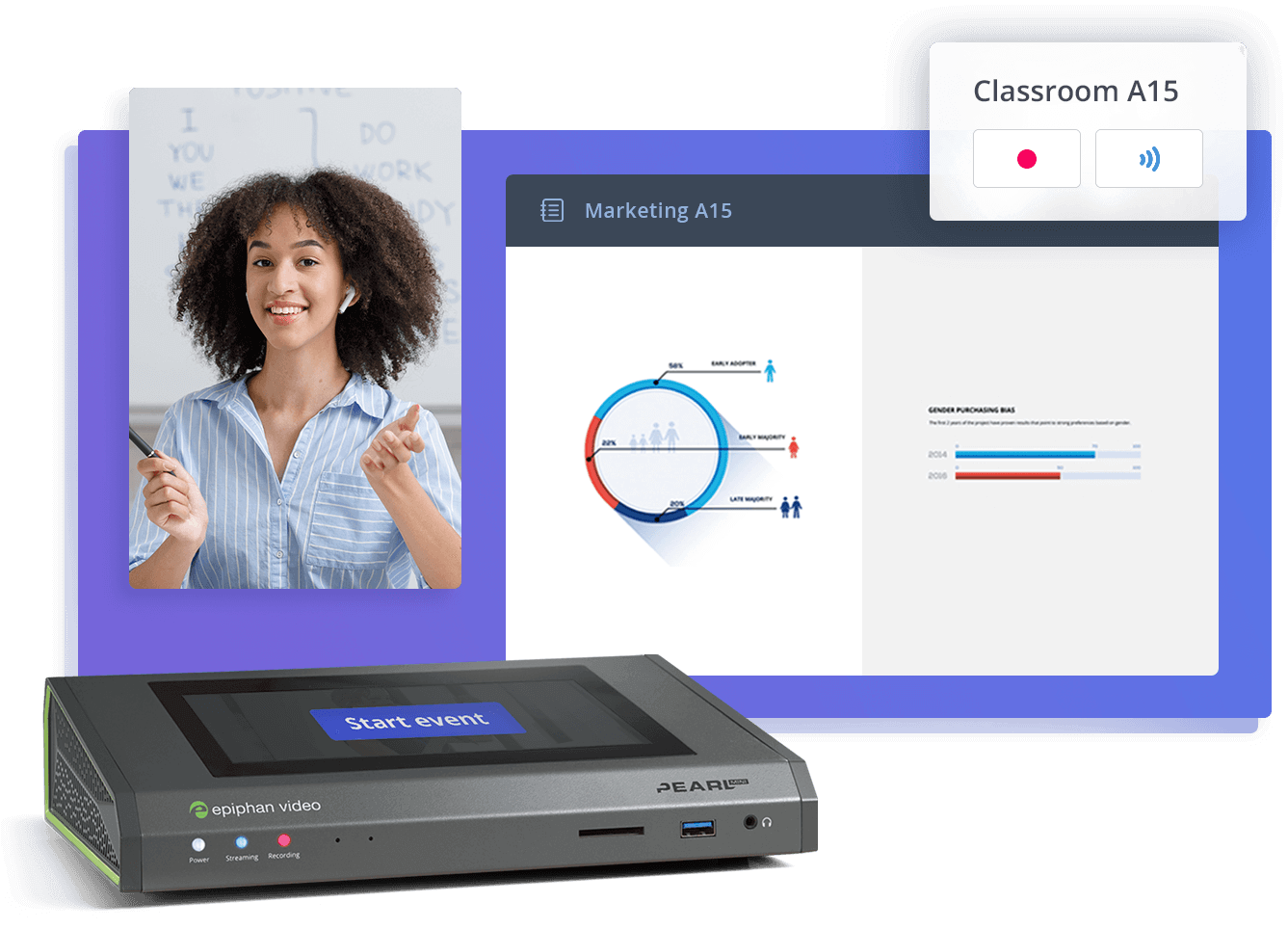
Equip your campus with best-in-class video solutions
Meet your school’s video production needs with a lineup of flexible and scalable hardware for video capture, streaming, and recording – all centrally managed. Perfect for lecture capture, online learning programs, and more.
Conclusion
Opencast stands out as a powerful, open-source video management platform, especially tailored for the needs of educational institutions and organizations looking to manage video content efficiently. Its compatibility with versatile and reliable recording hardware like Pearl encoders further enhances its appeal by ensuring high-quality video capture and management.
This mix provides a straightforward, effective way to create and share high-quality videos, making life easier for both educators and organizations. Together, they ensure a smooth video management process, supporting better learning and wider content distribution with less hassle.
